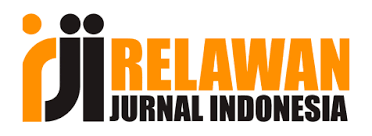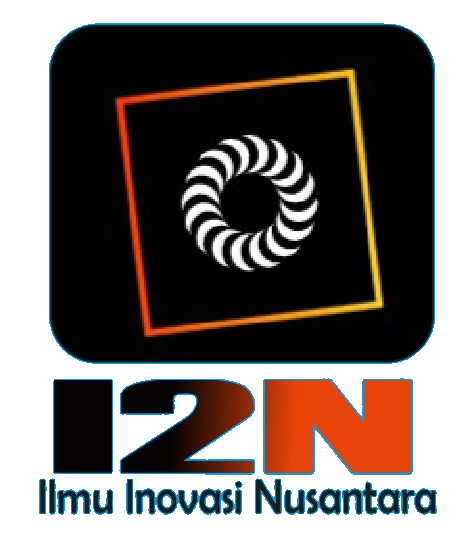Examining the Use of Discord Applications in Improving Science Learning Outcomes of Grade 7 Students
DOI:
https://doi.org/10.58557/ijeh.v2i2.84Keywords:
Online Learning Media, Learning outcomes, Discord App, WhatsApp, Distance LearningAbstract
During a pandemic like this, they were growing new regulations for conducting online learning, causing further problems in decreasing student learning outcomes in changing learning systems. This study aims to determine the factors that influence student learning interest in online learning with the Discord application, how the use of the Discord application is used in science learning and the effect of the Discord application on student learning outcomes in science learning. This research is a quantitative quasi-experimental study with a pretest-posttest control group design. The number of samples was 64 students from classes 7A and 7B, SMP Negeri 1 Depok, Depok District, Cirebon Regency. Data were obtained through pretest, posttest, questionnaire, interview, and documentation study. The results showed that the attractiveness of the Discord application as an online learning medium could influence students' interest in learning. The connectivity between teachers and students was more effective and efficient in online learning using the Discord application. The opportunity for students to play an active role during the learning process is incredible. The encouragement of motivation through the attitude of the teacher in learning. The influence of online learning media in the form of the Discord application on student learning outcomes in science subjects.
References
Andriani, H. (2020). Effectiveness of Large-Scale Social Restrictions (PSBB) toward the New Normal Era during COVID-19 Outbreak: a Mini Policy Review. Journal of Indonesian Health Policy and Administration, 5(2). https://doi.org/10.7454/ihpa.v5i2.4001
Arifianto, M. L., & Izzudin, I. F. (2021). Students’ Acceptance of Discord as an Alternative Online Learning Media. International Journal of Emerging Technologies in Learning, 16(20). https://doi.org/10.3991/ijet.v16i20.22917
Efendi, N., & Sartika, S. B. (2021). The Effect of Distance Learning Practicum based on PhET Interactive Simulations on Science Process Skills of Secondary School Students. Jurnal Pendidikan Sains (JPS), 9(1). https://doi.org/10.26714/jps.9.1.2021.91-96
Haq, M. A., Najmonnisa, & Saad, I. (2015). Impact of Cooperative Learning Teaching Methods on 7th Grade Students’ Academic Achievement: an Experimental Study. Journal of Elementary Education, 25(2). Retrieved from http://pu.edu.pk/images/journal/JEE/PDF-Files/6_Najmonnisa%2025(II).pdf
Haqq, A. A. (2016). Penerapan Challenge-Based Learning dalam Upaya Meningkatkan Kemampuan Pemahaman Konsepmatematika Siswa SMA. Eduma : Mathematics Education Learning and Teaching, 5(2). https://doi.org/10.24235/eduma.v5i2.1125
Haqq, A. A. (2017). Implementasi Challenge-Based Learning dalam Upaya Meningkatkan Kemampuan Penalaran Matematis Siswa SMA. Jurnal THEOREMS ( The Original Reasearch of Matematics), 1(2).Retrieved from https://jurnal.unma.ac.id/index.php/th/article/view/374/354
Hartanto, D., Fitriana, Y., & Sri Yuliani. (2021). Understanding of The Benefits And Value of Goods and Its Effect On Student Creativity in Utilizing Used Goods: Mindset Of Student Enterpreneur. Perspektif Pendidikan Dan Keguruan, 12(1). https://doi.org/10.25299/perspektif.2021.vol12(1).6704
Hoseini, M., Melo, P., Júnior, M., Benevenuto, F., Chandrasekaran, B., Feldmann, A., & Zannettou, S. (2020). Demystifying the Messaging Platforms’ Ecosystem through the Lens of Twitter. Proceedings of the ACM SIGCOMM Internet Measurement Conference, IMC. https://doi.org/10.1145/3419394.3423651
Isaak, R. C., Kleinert, S. I., & Wilde, M. (2022). The Influence of Gender and Interest on the Use of Learning Strategies in Biology Lessons. European Journal of Educational Research, 11(1). https://doi.org/10.12973/EU-JER.11.1.587
James, T. L., Zhang, J., Li, H., Ziegelmayer, J. L., & Villacis-Calderon, E. D. (2022). The moderating effect of technology overload on the ability of online learning to meet students’ basic psychological needs. Information Technology and People, 35(4). https://doi.org/10.1108/ITP-03-2021-0225
Juanda, A., Kurniawan, P., Suwanto, S., Eka, P. D., & Astutik, E. P. (2020). Menumbuhkan Rasa Gotong Royong dan Interaksi Sosial Di Kelurahan Pondok Jaya Kota Tangerang Selatan. Dedikasi Pkm, 1(2). https://doi.org/10.32493/dedikasipkm.v1i2.6383
Kerlinger, F. N. (1973). Foundation of Behavioural Research. American Journal of Educational Research, 2(1).
Luo, Z., Jingying, C., Guangshuai, W., & Mengyi, L. (2020). A three-dimensional model of student interest during learning using multimodal fusion with natural sensing technology. Interactive Learning Environments. https://doi.org/10.1080/10494820.2019.1710852
Maltsev, A., Klimenskikh, M., Savelev, V., Lebedeva, J., & Zubova, L. (2020). Psychological Profile of Successful Participants in Online Courses: The Example of The Russian Student Sample. Inted2020 Proceedings, 1. https://doi.org/10.21125/inted.2020.0204
Mesra, P., Kuntarto, E., & Chan, F. (2021). Faktor–Faktor Yang Mempengaruhi Minat Belajar Siswa di Masa Pandemi. Jurnal Ilmiah Wahana Pendidikan, 7(3).
Muhajirah, M. (2020). Basic of Learning Theory. International Journal of Asian Education, 1(1). https://doi.org/10.46966/ijae.v1i1.23
Panggabean, F. (2021). Penerapan Media Pembelajaran Daring dengan Memanfaatkan Aplikasi Discord pada Mata Pelajaran IPA Terpadu Selama Pandemi Covid-19 di Kelas VIII-2 SMP Negeri 2 Tebing Tinggi. School Education Journal PGSD FIP UNIMED, 11(1), 15–41. https://doi.org/10.24114/sejpgsd.v11i1.24565
Prilli Prisiska, & Syahril Furqany. (2021). Upaya Membangkitkan Motivasi Belajar Pendidikan Agama Islam Tingkat Anak-anak pada Masa Covid-19 di Gampong Jeulingke dengan Penerapan Komunikasi Persuasif. Jurnal Riset Dan Pengabdian Masyarakat, 1(2). https://doi.org/10.22373/jrpm.v1i2.1084
Puspitasari, Y. D., & Susdarwati, S. (2021). MOOC Development in Basic Natural Sciences as a Distance Learning Solution. IJIS Edu: Revista Indonesia de Educación Científica Integrada, 3(1).
Quintiliani, L., Sisto, A., Vicinanza, F., Curcio, G., & Tambone, V. (2022). Resilience and psychological impact on Italian university students during COVID-19 pandemic. Distance learning and health. Psychology, Health and Medicine, 27(1). https://doi.org/10.1080/13548506.2021.1891266
Raoofi, A., Takian, A., Sari, A. A., Olyaeemanesh, A., Haghighi, H., & Aarabi, M. (2020). COVID-19 pandemic and comparative health policy learning in Iran. Archives of Iranian Medicine, 23(4). https://doi.org/10.34172/aim.2020.02
Reviana, N., Matin, M. F., & Nurdianingsih, F. (2021). The Students’ Interest in Learning Four Basic English Skills Through Instagram Application. Jurnal Pendidikan Edutama.
Ridho, M. R., Muhaimin, M., & Harjono, H. S. (2021). Pengaruh Aplikasi Discord dalam Pembelajaran Daring Terhadap Hasil Belajar Pada Matakuliah Komputer. Jurnal Ilmiah Bina Edukasi, 14(1). https://doi.org/10.33557/jedukasi.v14i1.1367
Saba, A. I., & Elsheikh, A. H. (2020). Forecasting the prevalence of Covid-19 outbreak in Egypt using nonlinear autoregressive artificial neural networks. Process Safety and Environmental Protection, 141. https://doi.org/10.1016/j.psep.2020.05.029
Salvadora, S. L., Prietoa, J. M. M., & Pastranaa, M. R. (2017). Environmental Awareness as a Mediator Variable on Conceptions of Science Teaching and Learning. International Journal of Environmental & Science Education, 12(5).
Sari, R., Melani, A., Rahmayani, A., Aisiyah, D. P. N., & Nuraeni, S. D. (2021). Tips Meningkatkan Motivasi Belajar Siswa pada Pembelajaran Daring Akibat Pandemi Covid-19. Prosiding Dedikasi: Pengabdian Mahasiswa Kepada Masyarakat, 1(1).
Shapovalov, A. (2021). Educational experiment in the structure of blended learning technologies. Man and Education, 4 (69). https://doi.org/10.54884/s181570410018639-7
Snyder, I., & Beavis, C. (2004). Doing literacy online : teaching, learning, and playing in an electronic world. In New dimensions in computers and composition.
Stockton, R., & Kerlinger, F. N. (1974). Foundations of Behavioral Research. American Educational Research Journal, 11(3). https://doi.org/10.2307/1162206
Sunyono, S., Tania, L., & Saputra, A. (2020). Exploratory factor analysis of science, technology, engineering and mathematics career interest for pre-service math and science teachers: A case of Lampung University, Indonesia. Periodico Tche Quimica, 17(35). https://doi.org/10.52571/ptq.v17.n35.2020.25_sunyono_pgs_282_292.pdf
Zuckerman, A. L., Hardesty, R. A., Denaro, K., Lo, S. M., & Owens, M. T. (2021). Effects of Remote Teaching in a Crisis on Equity Gaps and the Constructivist Learning Environment in an Introductory Biology Course Series. Journal of Microbiology & Biology Education, 22(1). https://doi.org/10.1128/jmbe.v22i1.2293
Downloads
Published
How to Cite
Issue
Section
License
Copyright (c) 2022 Zannah, Zakiyyah, Nurwanti Fatnah

This work is licensed under a Creative Commons Attribution-ShareAlike 4.0 International License.














